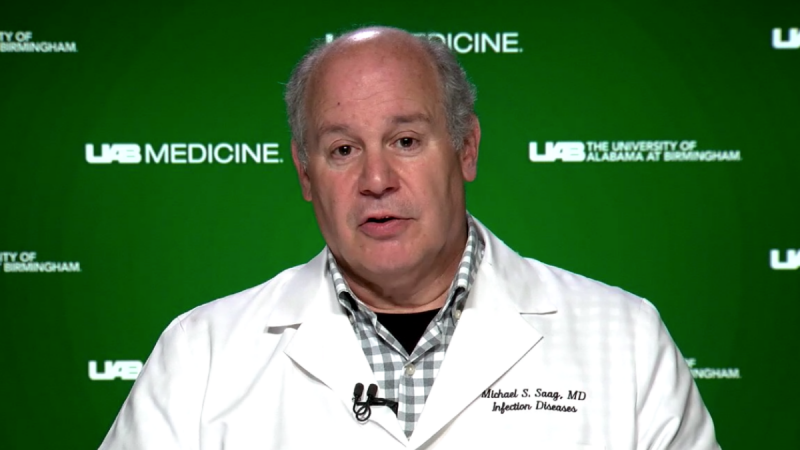Why Alabama’s Declining Vaccination Rate Could Spell An ‘Uncomfortable Summer’
Dr. Michael Saag, an infectious disease specialist at UAB, said he was concerned about declining rates of COVID-19 vaccination during a press conference on June 7.
After months of declining case numbers and hospitalizations, health experts are warning Alabama could soon see an uptick in COVID-19 infections.
The state’s vaccination rate ranks second to last nationwide, with just under 30% of residents fully vaccinated. And demand for the shot continues to plummet.
“I think we might be headed towards, I won’t call it a turbulent summer, but I will call it an uncomfortable summer,” said Dr. Michael Saag, an infectious disease specialist at the University of Alabama at Birmingham.
Even though most Alabamians are not fully protected against COVID-19, Saag said many residents have stopped wearing masks and have returned to activities like summer barbecues, sports games and other social gatherings.
“Somehow the messaging from CDC about ‘only fully vaccinated people being safe without a mask’ got lost in translation,” Saag said.
Alabama’s low vaccination rate presents a “very worrisome situation” that could possibly lead to a summer surge, according to Dr. Jeanne Marrazzo, who spoke to NPR’s Here & Now.
“People see that things are getting better,” Marrazzo said. “So I think the urgency has really come down. That’s informed a sense of complacency.”
Both doctors said that more residents, especially adults under the age of 40, need to get vaccinated to prevent the spread of more infectious variants.
In recent weeks, Birmingham city leaders and health officials have started offering financial incentives for residents to get a shot.
Saag said that could help reach some people, but more targeted messaging is necessary to combat vaccine hesitancy.
He predicted that Alabama “won’t be anywhere close” to reaching President Biden’s goal of getting 70% of the state’s population at least one dose of the COVID-19 vaccine by July 4.
Alabama’s racial, ethnic health disparities are ‘more severe’ than other states, report says
Data from the Commonwealth Fund show that the quality of care people receive and their health outcomes worsened because of the COVID-19 pandemic.
What’s your favorite thing about Alabama?
That's the question we put to those at our recent News and Brews community pop-ups at Hop City and Saturn in Birmingham.
Q&A: A former New Orleans police chief says it’s time the U.S. changes its marijuana policy
Ronal Serpas is one of 32 law enforcement leaders who signed a letter sent to President Biden in support of moving marijuana to a Schedule III drug.
How food stamps could play a key role in fixing Jackson’s broken water system
JXN Water's affordability plan aims to raise much-needed revenue while offering discounts to customers in need, but it is currently tied up in court.
Alabama mine cited for federal safety violations since home explosion led to grandfather’s death, grandson’s injuries
Following a home explosion that killed one and critically injured another, residents want to know more about the mine under their community. So far, their questions have largely gone unanswered.
Crawfish prices are finally dropping, but farmers and fishers are still struggling
Last year’s devastating drought in Louisiana killed off large crops of crawfish, leading to a tough season for farmers, fishers and seafood lovers.








